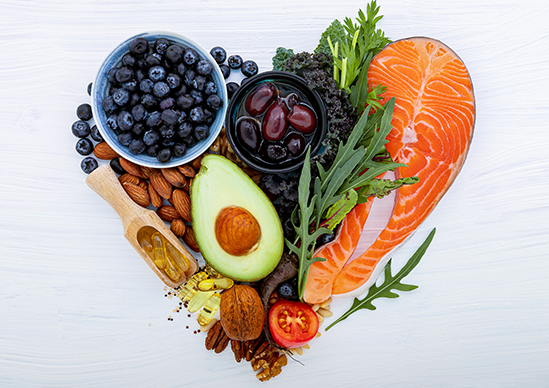Foods Registered Dietitians Love – We do the best we can with the knowledge we have, and when you have the education and credentials required to have the letters “RD” live behind your name, knowledge of health and wellness is critical.
In this manner, it isn’t is to be expected that when an individual is headed to turning into an enrolled dietitian, an individual’s dietary patterns might change or develop to more readily reflect what they are realizing.
From exploring the significance of greasy fish (and the advantages of omega-3 unsaturated fats) and cruciferous vegetables to picking natural dairy items, we talked with four enrolled dietitians and requested that they recognize the food varieties and propensities they’ve taken on since becoming They became nutritionists. . The following are 6 food varieties enlisted dietitians love and are fundamental for your week by week shopping list.
Table of Contents
Top 6 foods-registered-dietitians-love

Alaskan salmon
“Subsequent to finishing my four year certification in human sustenance at Cornell College, I moved to New York City to do my nourishment preparing at Columbia. During the data set, I gleaned tons of useful knowledge and changed my dietary patterns a little. I was a vegetarian for years , but knowledge about the benefits of omega-3 fatty acids in Fatty fish made me put sea food back on the menu wild caught and sustainable I swear the protein, DHA and vitamin D from the salmon got me through my first and final winter in New York.
Organic dairy products
“Before I became an RDN, I bought yogurt based on flavor and fat fraction. But in the procedure of my education, I began to learn how pesticides are stored in fat, and since I haven’t had children yet, I wanted to make sure I avoid pesticides as much as possible. I buy some conventional dairy, but most of what I buy for my family is USDA organic.”

Avocado
I raised up in western New York in a small town. We didn’t have a huge selection of fresh produce and I think the first time I tried avocados was in college. I didn’t start purchasing it regularly until after my diet placement when I enthused to San Francisco and ongoing my first job as a nutritionist at an integrated health clinic. I finally embraced the fats, the good stuff, and started including avocados in my weekly grocery shopping.”
Cruciferous vegetables
“While I ate some of these as a kid, I definitely increased my intake of vegetables like broccoli, cauliflower, Brussels sprouts, kale, and watercress after I became an RD. I discovered that cruciferous vegetables crop intensifies like glucosinolates and sulforaphane, which can decrease malignant growth risk by safeguarding cells from harm and purifying the collection of frightful mixtures. In addition, they’re an amazing wellspring of fiber, which the vast majority don’t get enough of. Coarseness won’t just assist with keeping you ordinary, however It likewise dials back assimilation and assists you with getting in shape and keep it off.
Beans, legumes and whole grains
“Unfortunately, the toxic diet culture has made many people afraid of beans and grains, but when you look at the Mediterranean diet, the diet of those who live longer, includes a lot of beans, legumes and whole grains. Being RD made me add more Beans Beans are full of soluble fiber, which forms a gel in the bowels, slowing ingestion and keeping you full Soluble fiber can also help lower bad cholesterol (LDL) Half a cup of black beans provides eight grams of fiber and seven grams of protein.”
Chia Seeds
“These seeds are supplement thick and a decent wellspring of cell reinforcements, fiber, omega-3 unsaturated fats, nutrients and minerals like calcium, magnesium, potassium, and B nutrients. In spite of the fact that I have no trouble getting large numbers of these supplements from other food sources, my RD brought up to me that omega-3 unsaturated fats are a piece precarious for me, so this was my principal hotspot for including a greater amount of them. They are also easy to use. I just sprinkle a tablespoon on my oatmeal, toast, salad, etc. With my kids, I call them “sprinkles” and make it fun to add nutrient-dense foods to our meals.”
Conclusion
Foods-registered-dietitians-love – We do the best we can with the knowledge we have, and when you have the education and credentials required to have the letters “RD” live behind your name, knowledge of health and wellness is critical. Hence, it isn’t is business as usual that when an individual is en route to turning into an enlisted dietitian, an individual’s dietary patterns might change or develop to all the more likely reflect what they are realizing.
